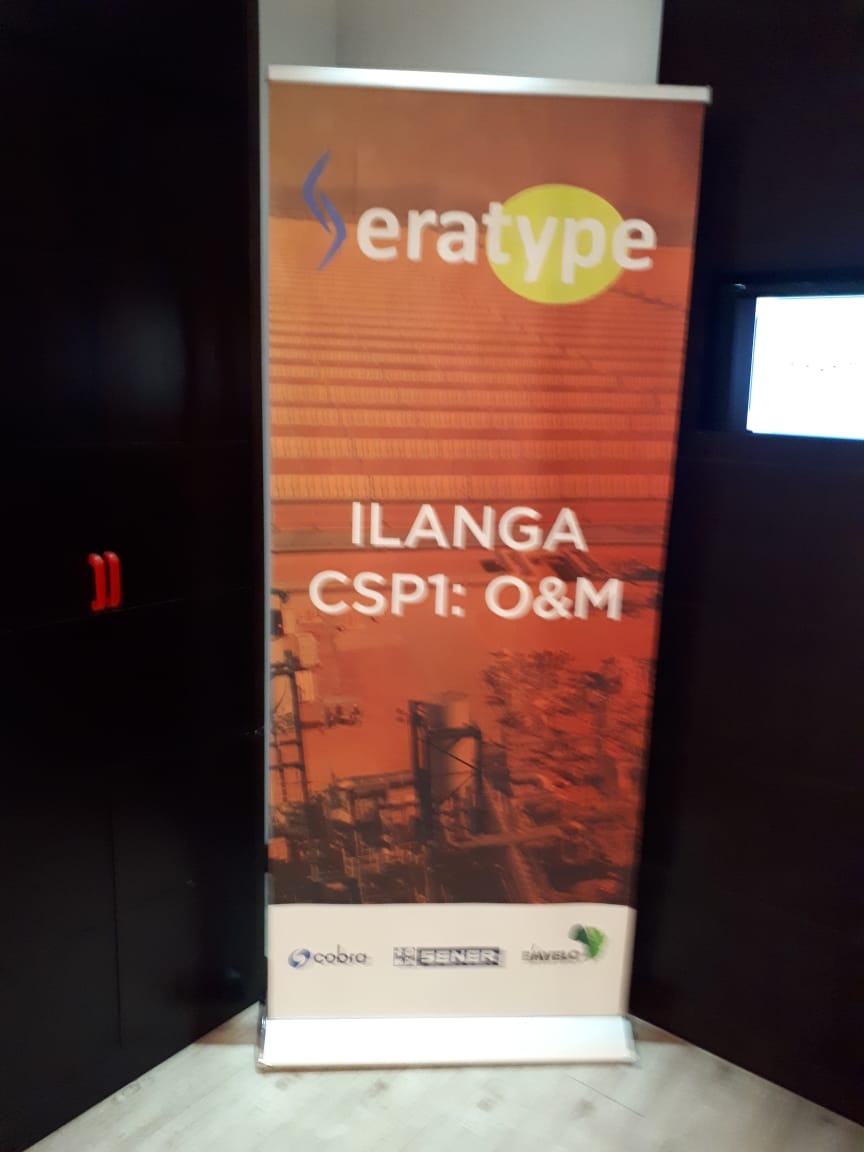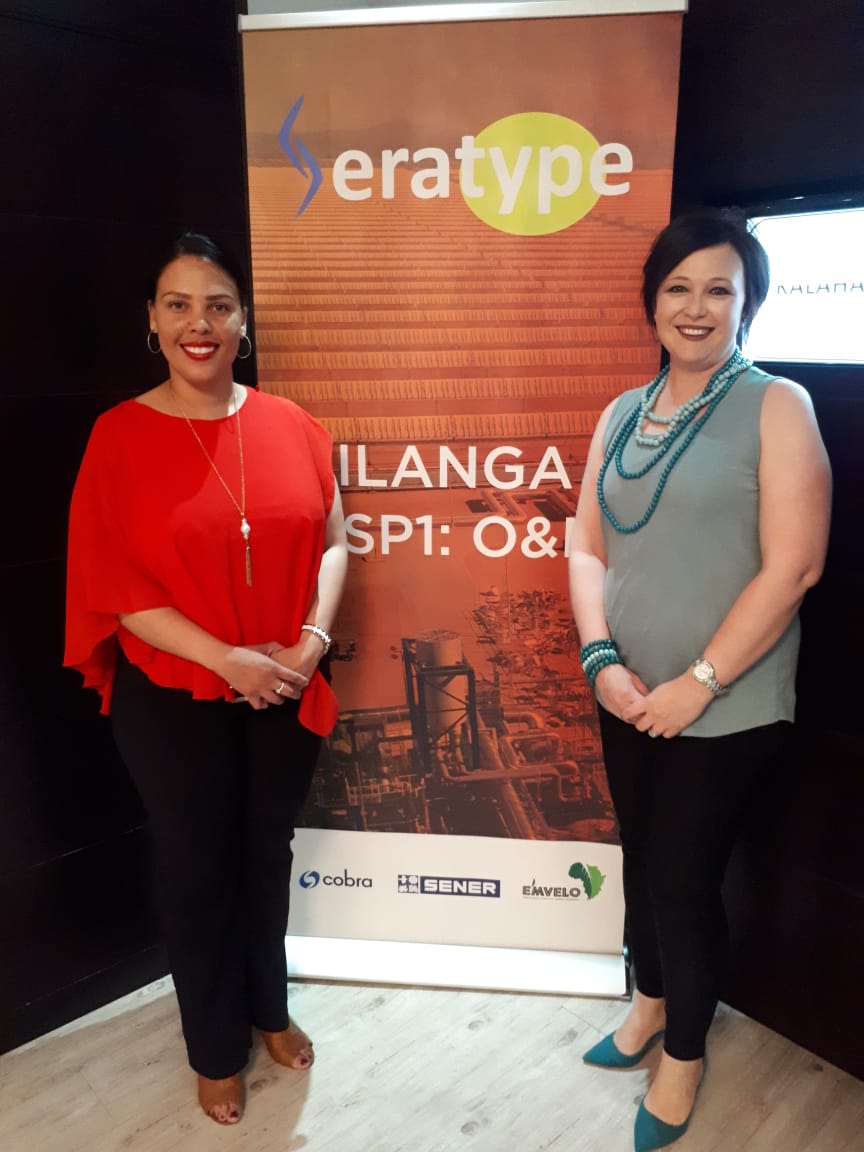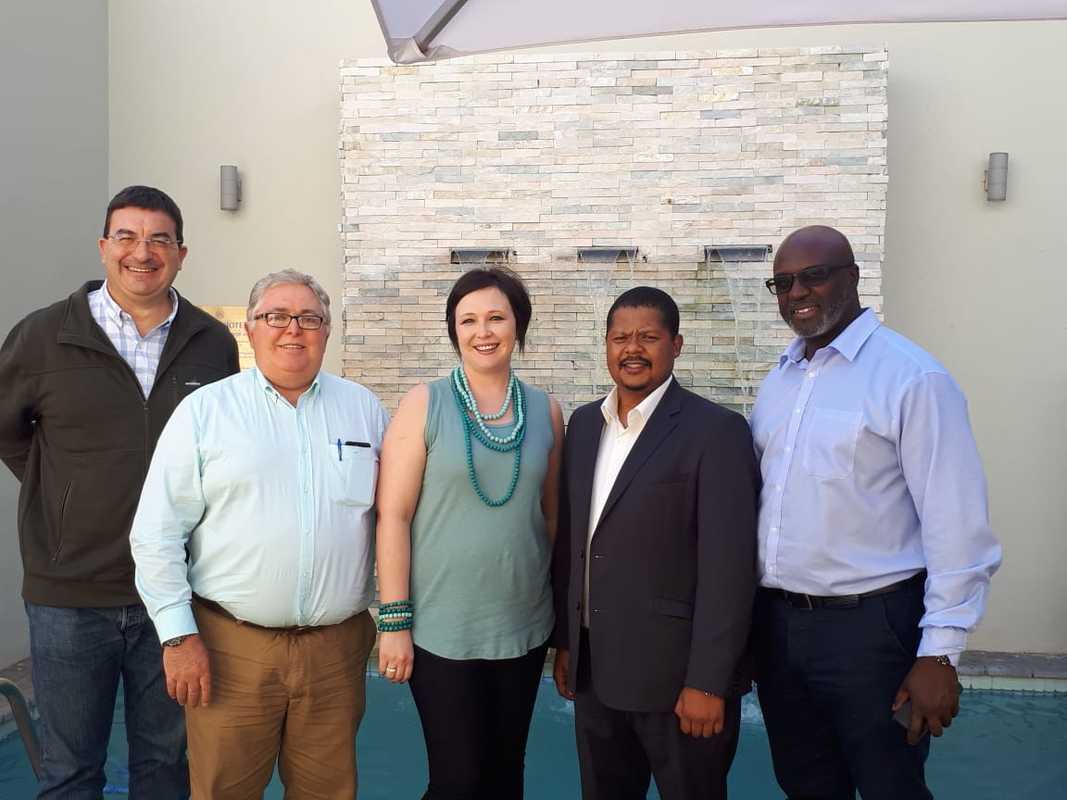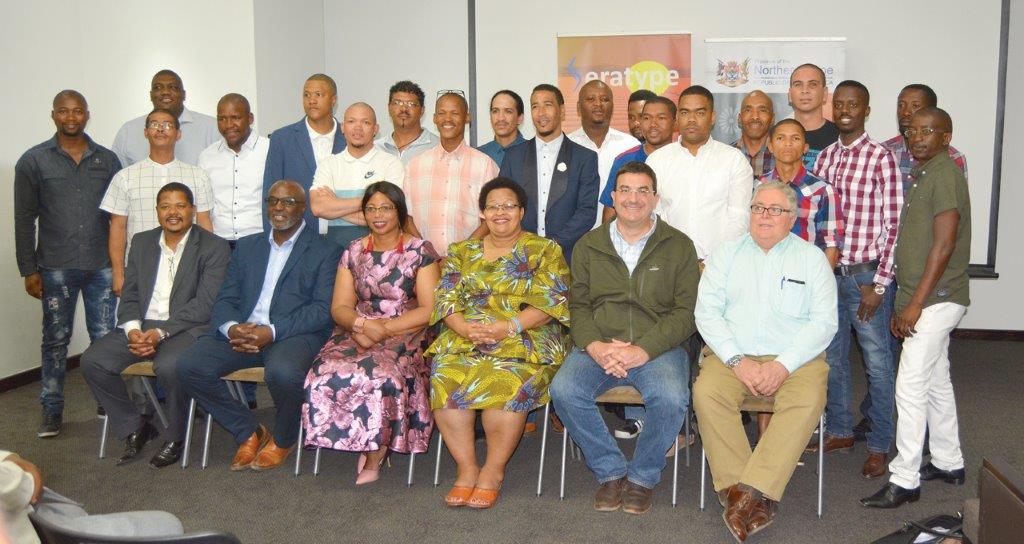| Upington –The Premier of the Northern Cape Province, Sylvia Lucas, attended the graduation ceremony of the first Operations and Maintenance training programme conducted in Upington which offered the tools and transfer of knowledge to prepare the youth in the operations of Solar Thermal Electricity (STE) power stations commonly known as Concentrated Solar Power (CSP). The graduation ceremony was held on 18 October 2018 and included a site visit to the Ilanga CSP 1 facility. In preparation for the Operations and Maintenance (O&M) phase which is scheduled to commence on 1 December 2018. IIanga CSP1’s O&M Operator (Seratype O&M) whose consortium partners are Cobra, Sener and Emvelo identified and selected 50 candidates, mostly youth within the 50km radius of the Ilanga CSP1 site, Dawid Kruiper Municipality, ZF Mgcawu District Municipality to attend the first CSP Operations and Maintenance training course in Upington. From 11 June to 27 July 2018, the selected trainees attended and completed a 200 hour long program. The course consisted of 14 theory modules, as well as practical visits to the Ilanga CSP1 plant to familiarize trainees with the day-to-day operation of solar thermal power stations. Upon completion, 22 of the trainees were offered employment as part of the Operation and Maintenance team During the ceremony Sylvia Lucas, Premier of the Northern Cape Province, stated that “langa CSP1 is the first and only CSP project that was conceived and developed by a 100% black owned South African developer. The O&M training for our youth provided by the Ilanga CSP1 partners is a first in the REIPPPP and is in line with government’s four accords, emanating from the New Growth Path (NGP); namely basic education, skills development, local procurement and the green economy. The Northern Cape has identified all renewable energy technologies including CSP as key in unlocking job opportunities for our youth, women and the transformation of our economy.” “South Africa’s National Development Plan (NDP) identifies education, training and innovation as central to South Africa’s long-term development. Skills development is an important factor in the success of the renewable energy projects we are carrying out. We are proud that we have had an opportunity to ensure that people from the Northern Cape are trained in various technical aspects of operating a concentrated solar power station. With the training they received, they have the skills to work at any concentrated solar power station in the world” said Siyabonga Mbanjwa, Regional Managing Director of SENER Southern Africa. “Ilanga CSP1 is a flexible power station, it has been designed to operate as a peaking power station and will operate during the day time and up to 5 hours at full load after the sunset. Night time electricity generation is achieved with a molten salt energy storage facility. 93% of the staff directly employed during the 3 year warranty period are South Africans and after the warranty period the plant will gradually get to a 100% South African operation”, said Gonzalo Ochoa, Plant Manager, Seratype O&M. During the construction of Ilanga CSP1, “the project clocked over 6 million working hours on site, 85% of the working hours clocked were by South Africans most of whom were local. We had 1500 construction workers on site at the peak of construction and around 1300 were South Africans” said Rafael Alonso, Project Management, Dankocom EPC. Pancho Ndebele, Developer of Ilanga CSP1 & Founder of Emvelo, said “With CSP, we are creating a solar thermal generation of present and future youth workers and for the Northern Cape to become the global hub for the deployment and industrialization of CSP components. If we are to create more opportunities for our youth and women across the CSP value chain, we need the current IRP that is out for public comment to include all renewables and at present CSP has been left out. A 2030 plan must include all technologies and the government has the flexibility to procure the megawatts it needs at an appropriate time from a basket of all the technologies it has in a balanced mix IRP”. Ndebele further stated, “To exclude technologies in a 12 year IRP, we are pushing away investors, innovators and researchers who are working daily to reduce costs and to come up with efficient designs and improvements on all the technologies that have been excluded. We hope the final IRP will be a policy adjusted plan, that includes all the technologies, as this is in the best interest of our developmental state and when government procures energy in future bid windows it has a balanced mix of options to choose from at the time of procurement which should be informed by market needs, price, environmental and socio-economic realities at the time of procurement”. Orffer & Van der Merwe proud to be part of the recruitment team! |
|
5 Comments
|
Latest News
Read the latest news, feedback and exciting developments from our team Archives
April 2024
Categories |




 RSS Feed
RSS Feed